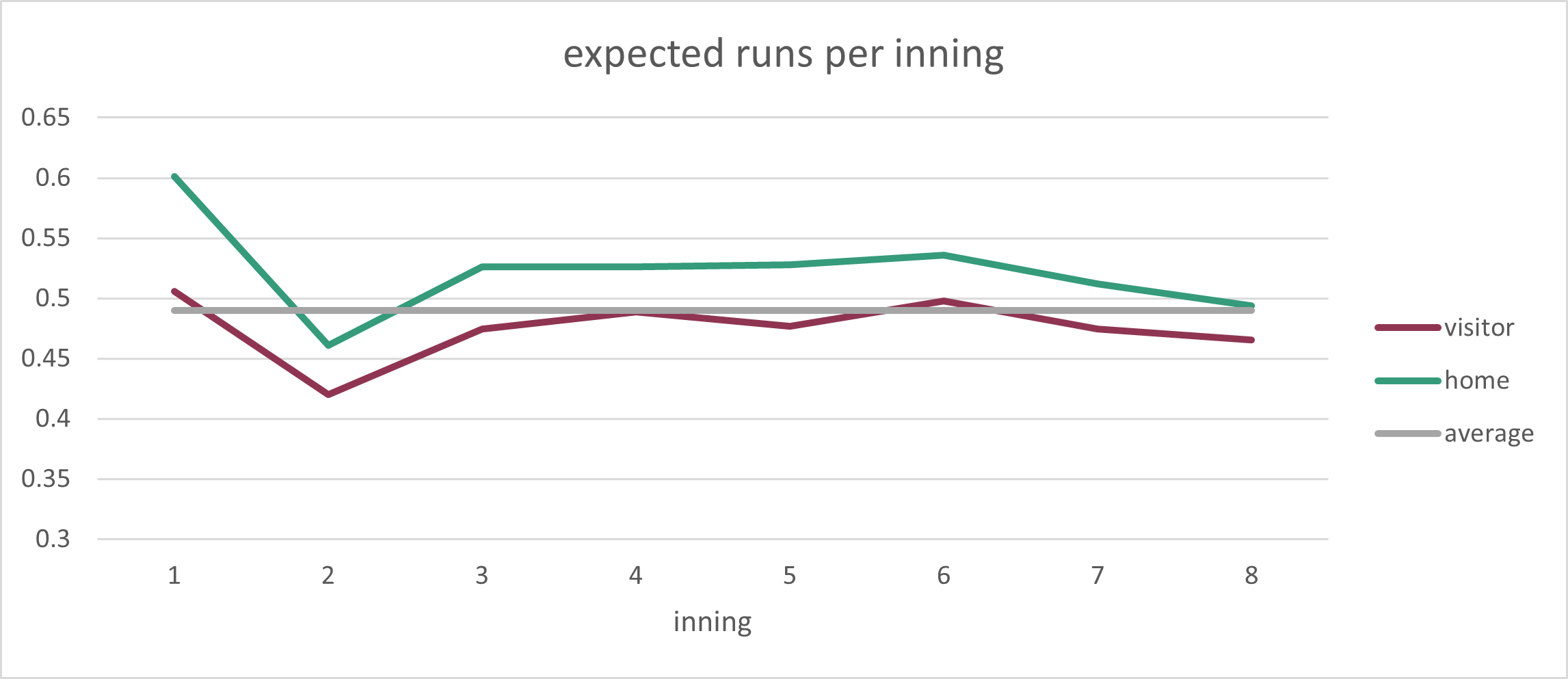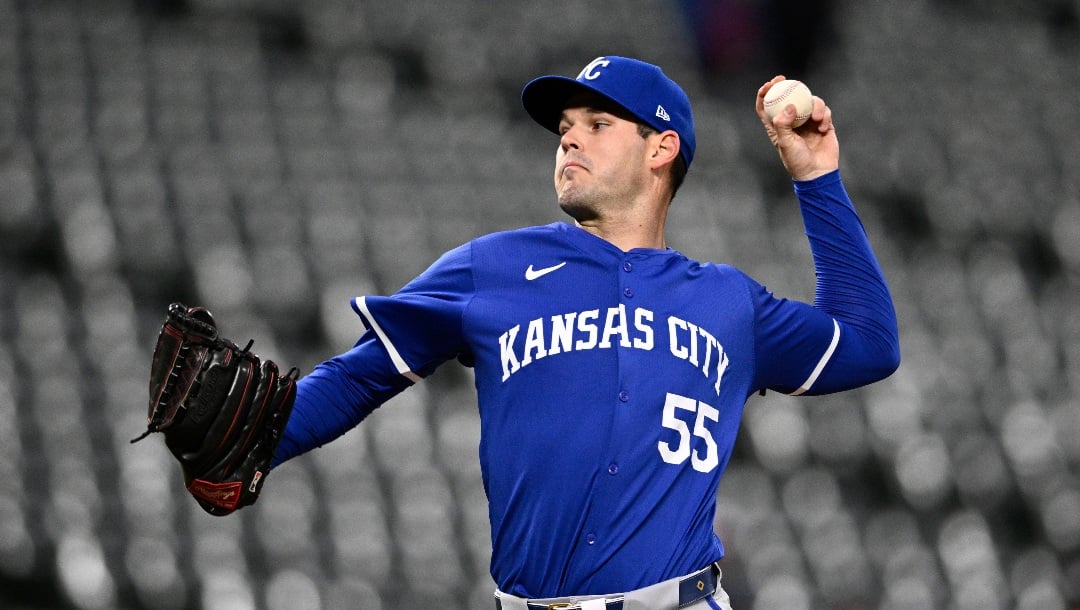First inning scoring mlb

First inning scoring mlb first inning was the highest-scoring inning 85 times, or nearly 87%. • Of the 13 seasons where it wasn't, six happened before World War II. I ran across this amazing fact recently: NL teams have scored over more runs in the 1st inning than in the 2nd inning this season. Tampa Bay Rays — 44 · Houston Astros — 44 · Los Angeles Angels — 42 · Texas Rangers — 40 · New York Yankees — 34 · Oakland Athletics — 33 · Boston Red. In Saturday's series opener, each team sent 10 batters to the plate, scored six runs, and chased the other team's starting pitcher (New York's.
MLB standings based only on first inning runs: Dodgers threaten Braves
The net rise in first-inning runs from last season to this season might not sound like a lot, but MLB games this season have included a first-inning run 56 percent of the time, up from 51 percent in March and April of 2022. That jump has immense betting consequences.What percentage of MLB teams score in the first inning? Of course there's a gambling angle 11 was the previous time a team scored in every at-bat. It was the 19th time in 116 years a team hit that mark, making the White Sox No. 20 on Monday. No American League team has ever scored in all nine innings.
What is the most common inning to score in baseball? The first inning was the highest-scoring inning 85 times, or nearly 87%. Of the 13 seasons where it wasn't, six happened before World War II -- so since 1945, the first inning had been the highest-scoring 91% of the time.
Has any MLB team scored in every inning? Chicago Colts 36, Louisville Colonels 7; June 29, 1897 (National League) Of course, technically the MLB record belongs to the Chicago Colts (now the Chicago Cubs). Chicago scored in every inning of the game and got six hits and a home run out of shortstop Barry McCormick.
Has there ever been a MLB game where a team scored in every inning? Chicago Colts 36, Louisville Colonels 7; June 29, 1897 (National League) Of course, technically the MLB record belongs to the Chicago Colts (now the Chicago Cubs). Chicago scored in every inning of the game and got six hits and a home run out of shortstop Barry McCormick.
What is a no score first inning bet? NFRI, of course, stands for No Runs in the First Inning. As the name suggests, these bets win if a baseball game gets to the second inning with the score still at 0-0.
What is the big inning theory? This finding implies that if a team achieves a big inning then it will probably win the game; in support of that implication, prior to the 1986 World Series, USA Today (Oct. 17, 1986) reported that teams that have had big innings during previous World Series games had a 40-7 (. 851) record. See also big bang theory.
Has a MLB team scored in every inning? White Sox score runs each inning
Does the team that scores first usually win? NFL teams that score first tend to win the game. Step chart showing the aggregate win percentage of NFL teams that have scored first in 2021, by week. The trend shows fluctuation but from Weeks 9 to 15, teams scoring first won almost 80 percent of the time. This season is no aberration, either.
All Innings Are Not Created Equal: How Run-Scoring Varies By Inning
For at least the past 10 years, teams especially NL teams have scored many more runs in the 1st than in the 2nd. The following graph shows the average difference in scoring by inning for both the NL and the AL in that time. As you can see, both leagues score more runs than average in the 1st inning and less than average in the 2nd inning. The difference is even more stark for the NL than for the AL.
Run-scoring then increases in the middle innings, reaching a peak in the 6th, before dropping in the latter innings. Particularly in the AL, teams score drastically fewer runs per inning in the 9th than in the preceding innings. After the jump, I present a few theories to try to explain the inning-by-inning scoring differences, as well as the disparity between the leagues.
The essence of this phenomenon, I believe, is that teams typically bat their better hitters toward the top of the lineup and their worse hitters at the bottom of the lineup. Hence, if teams have constructed their lineups properly, their top hitters will come up to the plate more often in the 1st than in any other inning.
In addition, we certainly cannot rule out the idea that there are simply more pitchers who have trouble in the first inning I call this "Tom Glavine Syndrome" than pitchers who thrive from the get-go. Why, then, are the NL's run totals so much higher than average in the 1st. The main difference between the leagues is of course that NL pitchers hit much more often.
NL pitchers almost never hit in the 1st inning, however, and when they do, their team has already scored. So NL teams will score more than average in the first simply because they do not have weak-hitting pitchers weighing down the lineup in that inning. That cannot explain all of the difference between the leagues, however. Because NL teams have actually scored more runs per 1st inning than AL teams.
That's not relative to the league averages, that's actual runs per inning:. Granted, this is not a huge difference, but it is fairly consistent in recent years. NL teams have scored more runs per 1st inning in 8 of the past 10 seasons and all of the past 6.
I can't say for sure why this might be, but I'd theorize that the NL has had better "top-of-the-order" hitters in the past few seasons. Tom Tango made a similar observation a while ago. First inning scoring mlb I dive into this more in the follow-up post here. This piece originally ran on my blog.
Pitching on the road is intimidating. And that sense of unease is always worst in the first inning… Also, starting pitchers on the road are more likely to be travel weary while the opposing starting pitcher slept in his own bed. This is very interesting!
If it is the warm-up delay factor, then this implies there is a decent amount to be gained for road teams by changing up the timing of starters warming up. I assume every mound is a little different but still within the ruled standards and getting accustomed to it takes a little time. Maybe getting a good groove worn in for your landing foot or something?
The home pitcher would naturally be accustomed to it or maybe even have the grounds crew tailor it to their requirements. Top of the lineup starts off the game…that should explain some of this and you have mentioned this. Perhaps this is exascerbated by being on the road different mount in bullpen during warmups and in the game, different routine, etc. This was discussed many years ago on Tangos blog.
Originally I thought that the home team had an advantage by seeing how the umpire was calling the game against the visiting team in the top of the first. But the real answer is much simpler.  All hail the first inning leaders, the Atlanta Braves. They lead the division and the rest of the league with 55 total runs, though a certain NL West team is close behind.
All hail the first inning leaders, the Atlanta Braves. They lead the division and the rest of the league with 55 total runs, though a certain NL West team is close behind.
Still wondering why the Mets got swept by the Braves this past week. The Brewers lead the NL Central with 41 runs in the first inning, yet they rank in the bottom in total runs scored. The Reds and Cardinals are tied in first inning runs and total runs; the Cubs miss Cody Bellinger dearly. Well, well, well.